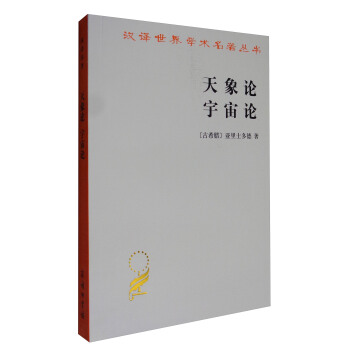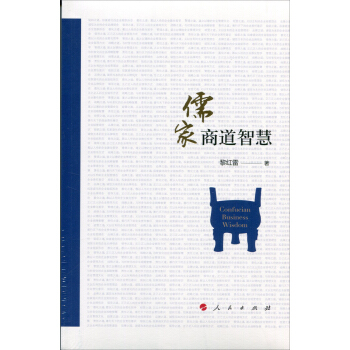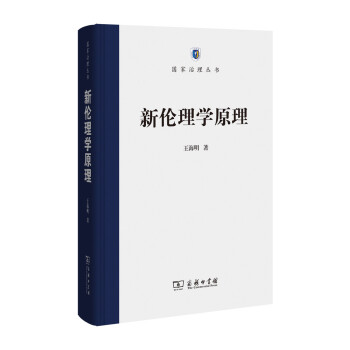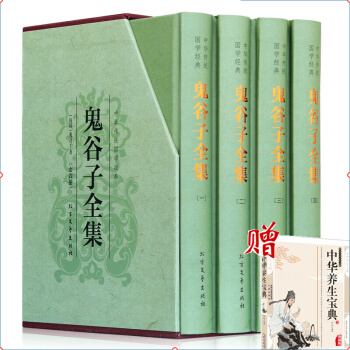

具体描述
内容简介
《剑桥政治思想史原著系列:理想国(影印本)》旨在使学生能够获得从古希腊到20世纪初期西方政治思想史方面所有最为重要的原著。它囊括了所有著名的经典原著,但与此同时,它又扩展了传统的评价尺度,以便能够纳入范围广泛、不那么出名的作品。《剑桥政治思想史原著系列:理想国(影印本)》有一个评论性的导言,加上历史年表、生平梗概、进一步阅读指南,以及必要的词汇表和原文注解。《剑桥政治思想史原著系列:理想国(影印本)》的最终目的是,为西方政治思想的整个发展脉络提供一个清晰的轮廓。内页插图
目录
Translator's prefaceEdrtor's preface
Introduction
The Thirty
Faction
A Spartan utopia?
The philosopher and the king
A political work?
City and soul
Mathematics and metaphysics
A guide to further reading
Principal dates
Abbreviations and conventions
Editor's synopsis of The Republic
The Republic
Book 1
Book 2
Book 3
Book 4
Book 5
Book 6
Book 7
Book 8
Book 9
Book 10
Glossary
Index
精彩书摘
'All right,' he said. 'You must be aware that some cities are tyrannies,some are democracies, and others aristocracies?''Of course.'
'And what is in control in each city is the ruling power?'
'Every ruling power makes laws for its own good. A democracy makes democratic laws, a tyranny tyrannical laws, and so on. In making these laws, they make it clear that what is good for them, the rulers, is what is just for their subjects. If anyone disobeys, they punish him for breaking the law and acting unjustly. That's what I mean, "my friend," when I say that in all cities the same thing is just, namely what is good for the ruling authority. This, I take it, is where the power lies, and the result is, for anyone who looks at it in the right way, that the same thing is just everywhere - what is good for the stronger.'
'Now I understand what you mean,' I said, 'though whether or not it is true remains to be seen. So even your answer, Thrasymachus,is that what is good for a person is just, though that was an answer you told me firmly not to give. But you add the qualification "for the stronger."'
'A trivial addition, you may say.'
'That's not yet clear. It may well be an important one. What is clear is that we must examine whether what you say is true. Like you,l agree that justice is something that is good for a person, but while you qualify it as what is good for the stronger, I'm not so sure. We should examine the question.'
'Go on, then. Examine it.'
'I shall,' I said. 'Tell me, don't you also say that it is right for subjects to obey their rulers?'
'And are they infallible, the rulers in all these cities? Or are they capable of making mistakes?'
'They are certainly, I imagine, capable of making mistakes.'
'So when they set about enacting laws, do they enact some correctly, but a certain number incorrectly?'
'In my opinion, yes.'
'And "correctly" is enacting laws which are in their own interest, and "incorrectly" is enacting laws which are against their own interest? Is that what you mean?'
'But whatever they enact, their subjects must carry it out, and this is justice?'
'Of course.'
'In that case, according to your definition,it is not only just to do what is good for the stronger, but also its opposite, what is not good for him.'
'What do you mean?' he said.
'I mean what you mean, I tlunk. Let's look at it more closely. Haven't we agreed that the rulers,in giving orders to their subjects to do anything, sometimes make mistakes about what is in their own best interest, but that it is just for the subjects to carry out whatever orders their rulers give them? Isn't that what we have agreed?'
'Yes,' he said. 'I accept that.'
'Then you must also accept,' I said,'that we have agreed it is just to do things which are not good for the rulers and the stronger, when the rulers inadvertently issue orders which are harmful to themselves, and you say it is just for their subjects to carry out the orders of their rulers. In that situation, most wise Thrasymachus, isn't the inevitable result that it is just to do the exact opposite of what you say? After all, the weaker have been ordered to do what is not good for the stronger.'
'Indeed they have, Socrates,' said Polemarchus. 'No question about it.'
'No question at all,' Cleitophon interrupted, 'if you are acting as a witness for Socrates.'
'Who needs a witness?' said Polemarchus. 'Thrasymachus himself agrees that rulers sometimes issue orders which are bad for themselves, but that it is right for their subjects to carry out these orders.'
'Yes, Polemarchus, because carrying out orders issued by rulers was what Thrasymachus defined as just.'
……
前言/序言
用户评价
说实话,当我第一次翻开这本书时,那种阅读的体验是充满挑战性的,但也正是在这种挑战中,我找到了阅读经典真正的乐趣所在。这本书的文字,带着那个时代特有的逻辑和表达方式,句子冗长而结构复杂,不像现代白话文那样一目了然。我必须放慢速度,逐字逐句地去揣摩作者构建的每一个论证链条,时常需要停下来,在脑海中将那些层层叠叠的修辞和隐喻解构、重组。这绝对不是那种可以让你在通勤路上轻松消遣的读物,它要求你全身心地投入,拿出足够的耐心和专注力。但正是这种“啃书”的过程,让知识的吸收变得格外扎实和深刻。每一次攻克一个难懂的段落,都像是攀上了一座学术的高峰,那种成就感是无可替代的。它强迫你进行深度的思考和内心的反刍,而不是被动地接受信息流,这对于提升个人的思辨能力,简直是一剂猛药。
评分坦白讲,对于很多非专业人士来说,阅读这类原著系列可能会被其严肃性和学术性劝退,认为那是一群“故纸堆”里的学问。然而,我发现,这套书的魅力恰恰在于它以一种近乎“去魅”的方式,将那些高高在上的理论拉到了现实的语境下进行探讨。它不是在炫耀艰深的词汇,而是在直面人类社会永恒的核心问题:秩序、正义、权力、自由。每当我读到某个章节,都会忍不住与当下社会正在发生的事件进行对照反思。比如,在讨论某种治理模式的理想状态时,你会不自觉地联想到当今政治舞台上的种种博弈和妥协。这种跨越时空的对话,让书中的理论不再是冰冷的文字,而是鲜活的、具有指导意义的智慧。它教会我如何用更深刻、更历史的视角去看待我们每天面对的纷繁复杂的社会现象,极大地拓宽了我的思维边界。
评分这套书的选材和编排,展现出了一种令人钦佩的学术视野和编纂水准。它不是简单地堆砌文献,而是在梳理一条清晰的思想脉络,仿佛有一位高明的向导,带着你穿梭于不同历史时期和文化背景下的伟大思想交锋之中。我特别欣赏它在关键概念和人物之间的联系处理上所下的功夫,很多我原本以为是孤立的观点,在这一系列作品的映照下,突然间相互连接,形成了一个宏大的知识网络。这种系统性的梳理,极大地帮助我构建起对整个思想史的整体认知框架。它让我明白了,那些伟大的思想家们并非凭空出现,他们的学说都是对前人智慧的继承、批判和发展。对于任何想要建立扎实知识体系的人来说,这种结构化的呈现方式,比零散的阅读材料要高效得多,它提供了一个坚实的基石,让后续的深入研究有了明确的方位感。
评分这套书的装帧设计着实令人眼前一亮,那种沉甸甸的厚重感,以及封面和字体所散发出的古典韵味,简直让人爱不释手。每次把它从书架上取下来,指尖拂过封面,都能感受到一种跨越时空的庄重与肃穆。那种影印版的质感,保留了原著原汁原味的排版和字体风格,即便是现代的印刷技术,也很难完全复刻那种历史的痕迹。对于一个深爱经典、追求原貌的读者来说,这简直是一种视觉和触觉上的享受。虽然阅读过程中可能需要多花一些心思去适应那种略显古旧的版式,但这种“原物重现”的体验,远比那些经过过度现代化的版本来得更有吸引力。它不仅仅是一本书,更像是一件珍贵的文物,静静地躺在那里,散发着历久弥新的光芒,让人忍不住想要珍惜和守护。这种对细节的坚持和对历史的尊重,是许多当代出版物所缺乏的,也正是这套书最打动我的地方。它让阅读不再仅仅是获取信息,更像是一场与历史深处的庄严对话。
评分这本书的价值,用“常读常新”来形容或许都略显保守了。我至少已经翻阅了三遍,每一次都有全新的体悟,这正是经典作品区别于一般流行读物的根本所在。初读时,我关注的是故事情节或基本观点;二刷时,我开始品味文字背后的哲学意图和微妙的语境差异;而到了第三遍,我发现自己更多地是在与作者进行一种心领神会的交流,去探索那些文本之间留白的、需要读者自行填补的意义空间。这种阅读体验的层次感,让人对编纂者的用心深感敬佩。它提供了一个极其稳定的平台,无论外部世界如何变幻,核心的这些思考维度始终在那里,等待着你以更成熟的心智去重新审视。它不是一本读完就可以束之高阁的书籍,而是应该长期置于案头,成为精神上的一个固定参照点,不断地在你人生的不同阶段,为你提供新的启发和解答。
评分人类追求的正义与善就是柏拉图理想国的主题,他认为国家、政治和法律要朝向真正的存在并与人的灵魂相关才有意义。在《理想国》里苏格拉底刚开始讨论的话题就是“正义”问题,由此我们可以看到柏拉图对正义有着多么强烈的憧憬与向往!他认为绝对的正义在神那里,这正好印证了对话结尾的宣言,“让我们永远走向上的路,追求正义和智慧”。正义和智慧不仅是国家的主题,也可以说是整个宇宙存在的本质,因为国家的起点“就是永无止境的时间以及时间带来的变化”。
评分很好,经典,便宜
评分不错的书,很经典,对研究很有帮助,服务,快递也很好,值
评分书没问题,应该是正品,但是没有包装,赤裸裸一本书,天知道是不是新的,京东越来越厉害了
评分这套书印数不大,但至今未售罄,但书确实原版引进,是好书。
评分书没问题,应该是正品,但是没有包装,赤裸裸一本书,天知道是不是新的,京东越来越厉害了
评分人类追求的正义与善就是柏拉图理想国的主题,他认为国家、政治和法律要朝向真正的存在并与人的灵魂相关才有意义。在《理想国》里苏格拉底刚开始讨论的话题就是“正义”问题,由此我们可以看到柏拉图对正义有着多么强烈的憧憬与向往!他认为绝对的正义在神那里,这正好印证了对话结尾的宣言,“让我们永远走向上的路,追求正义和智慧”。正义和智慧不仅是国家的主题,也可以说是整个宇宙存在的本质,因为国家的起点“就是永无止境的时间以及时间带来的变化”。
评分好
评分很不错好好好好好好好好好好很不错
相关图书
本站所有内容均为互联网搜索引擎提供的公开搜索信息,本站不存储任何数据与内容,任何内容与数据均与本站无关,如有需要请联系相关搜索引擎包括但不限于百度,google,bing,sogou 等
© 2026 book.coffeedeals.club All Rights Reserved. 静流书站 版权所有

![西方传统·经典与解释:斯宾诺莎的宗教批判 [Die Religionskritik Des Spinoza] pdf epub mobi 电子书 下载](https://pic.windowsfront.com/11163656/rBEHZlD8xh0IAAAAAAfDI8j8wv4AADshgM2eM0AB8M7195.jpg)


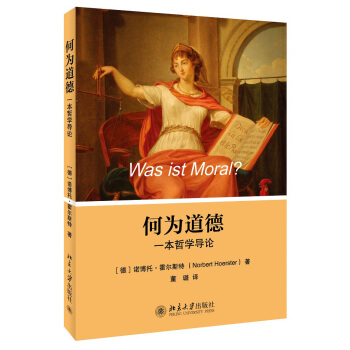




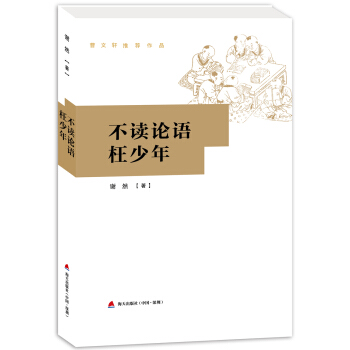
![巴迪欧:关键概念 [Alain Badiou: Key Concepts] pdf epub mobi 电子书 下载](https://pic.windowsfront.com/12077968/5848d22bN48f1eb4a.jpg)
